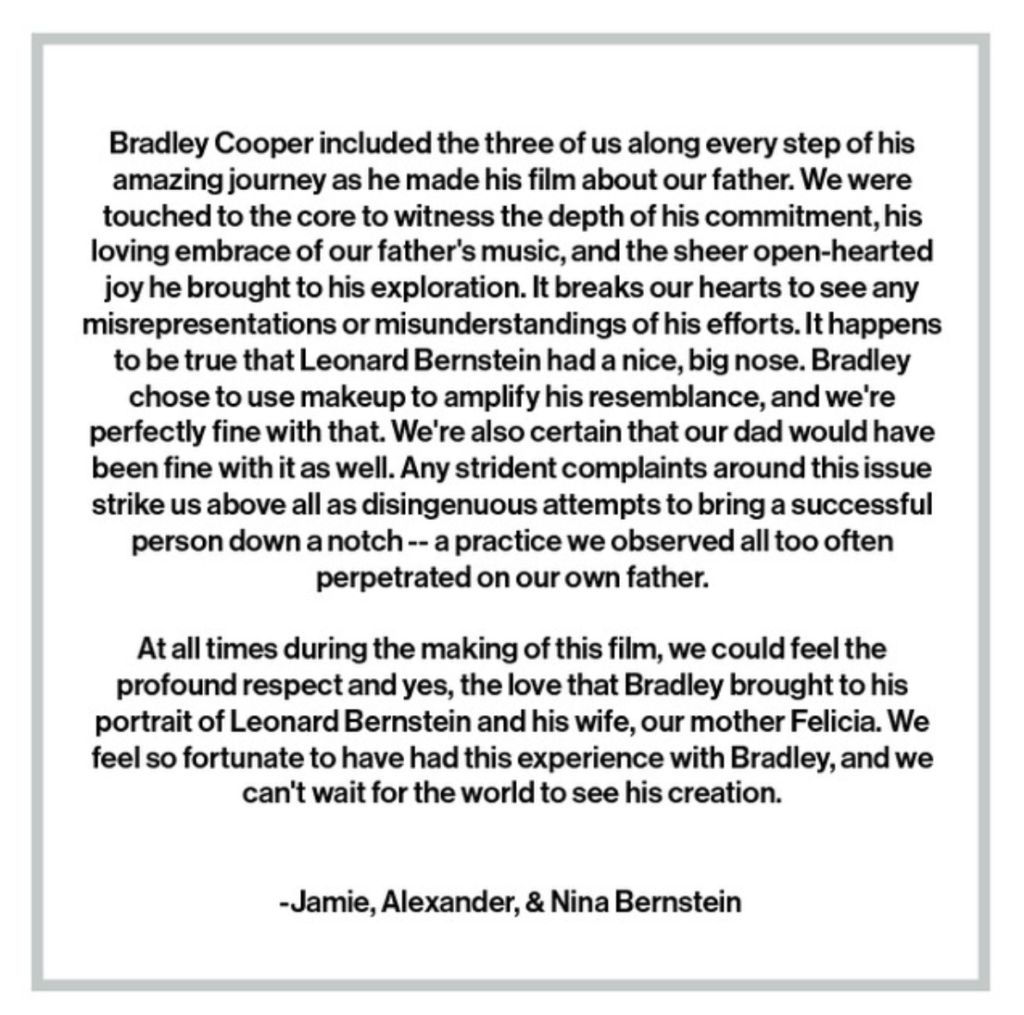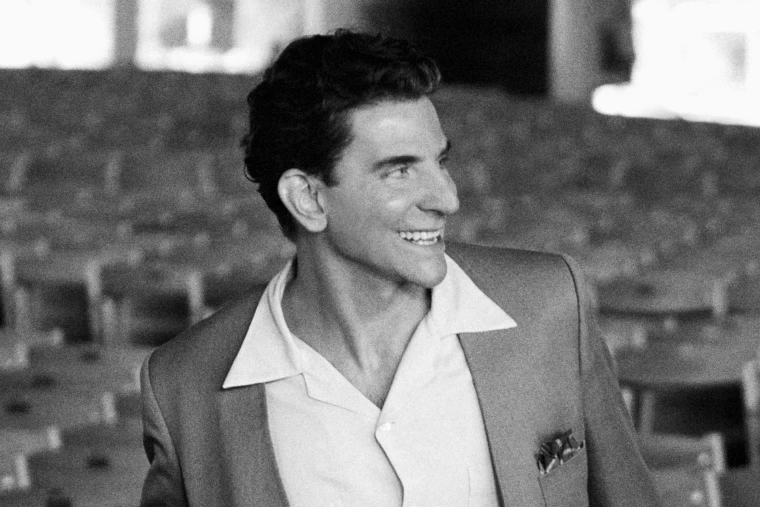The world of cinema has once again found itself entangled in a web of debates and discussions, this time centered around actor Bradley Cooper’s latest biopic project. Cooper, known for his diverse roles and creative prowess, is both the driving force behind and the face of the upcoming film. However, his portrayal of the esteemed composer Leonard Bernstein has ignited a fiery controversy, prompting discussions about cultural sensitivity and the use of facial prosthetics in film.
In this ambitious cinematic venture, Bradley Cooper not only takes on the challenging role of Leonard Bernstein but also assumes the roles of producer, director, and co-writer. The complexity of his involvement underscores the gravity of the ensuing controversy.
Leonard Bernstein, a Jewish composer who left an indelible mark on the world of music, serves as the focal point of Cooper’s biographical narrative. While it’s not uncommon for actors to portray characters of different backgrounds, Cooper’s choice to utilize facial prosthetics in his portrayal of Bernstein has raised critical questions about the concept of “Jewface.” This term, drawing parallels to the derogatory term “blackface,” denotes the act of non-Jewish individuals using makeup to depict Jewish characters, a practice that has deep-rooted historical connotations.
The crux of the criticism revolves around whether Cooper’s decision to use a prosthetic nose was warranted. Critics argue that his natural features already bear a striking resemblance to Bernstein, prompting discussions about why the casting process didn’t prioritize Jewish actors.
A compelling voice in this discourse is that of Jewish comedian Sarah Silverman, who previously highlighted the prevalent trend of non-Jewish actors portraying Jewish characters within the entertainment industry. Silverman, intriguingly, later participated in Cooper’s own production, taking on the role of Shirley Bernstein.

The controversy escalated with the release of production photos from the biopic’s set in 2022. These images intensified the ongoing debate, with some media outlets condemning Cooper’s use of prosthetics, deeming it insensitive and unnecessary. On the flip side, other perspectives arose, challenging these claims by noting that Cooper not only differs from Bernstein in his religious background but also in his sexual orientation and profession. This reference was made to Cooper’s prior role as an “alcoholic singer-songwriter in love with Lady Gaga” in the film “A Star is Born.”
In the midst of this impassioned discourse, Leonard Bernstein’s children stepped forward to defend Bradley Cooper’s creative choices. In an Instagram post, they highlighted the collaborative nature of their involvement with the biopic and the respect Cooper exhibited for their father’s legacy. The post emphasized that Cooper’s decision to utilize makeup to enhance his resemblance to Bernstein was a result of mutual understanding and agreement.
As the film industry navigates the intricacies of cultural representation and authenticity, Bradley Cooper’s biopic becomes a poignant example of the complexities and challenges faced by filmmakers and actors. The dialogue spurred by this controversy highlights the ongoing evolution of the industry, as it grapples with the responsibility of accurately representing diverse backgrounds and experiences on screen.




